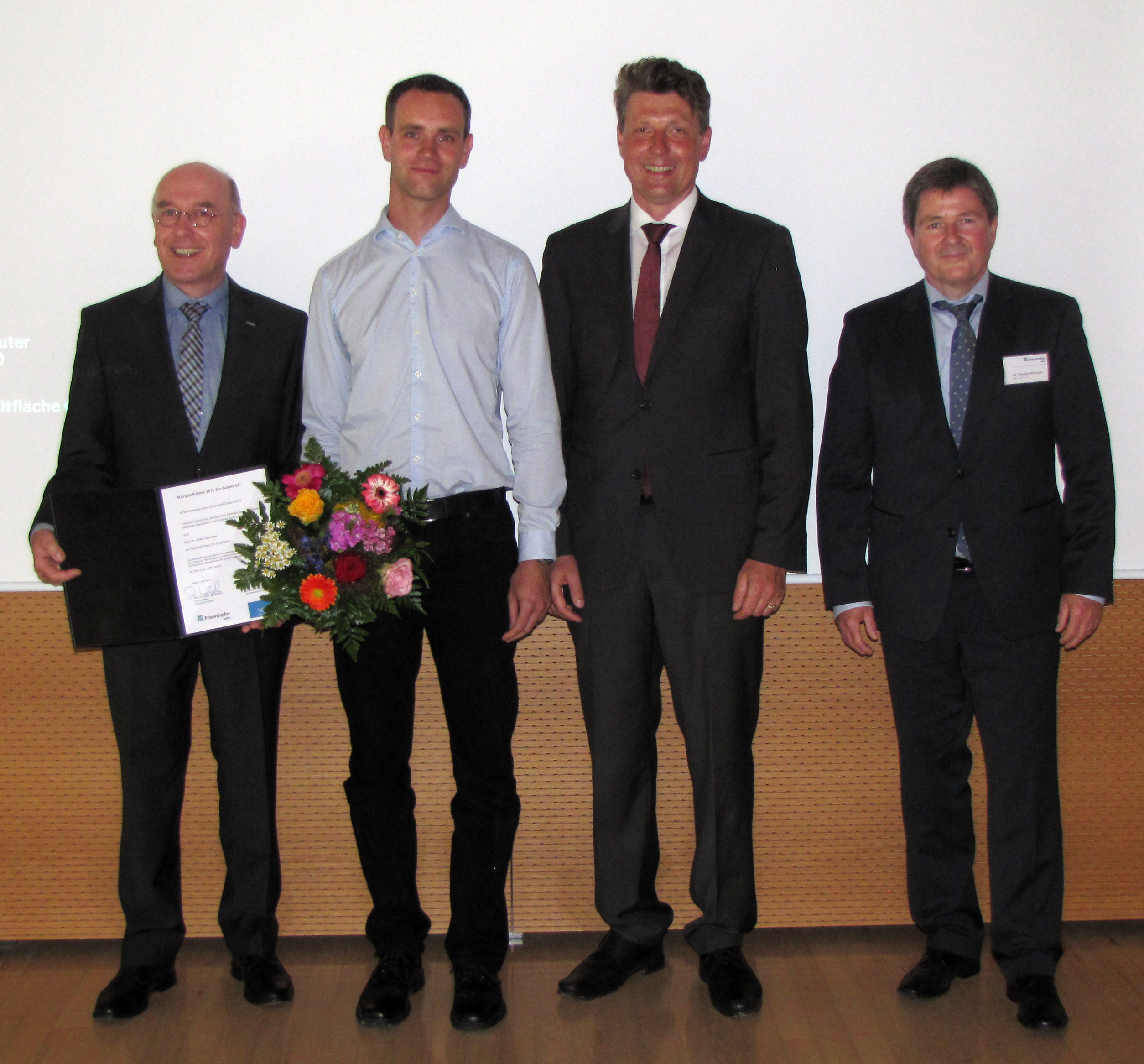Volker Naumann awarded the Materials Prize (“Werkstoff-Preis”) by Schott AG
Dr. Volker Naumann was awarded the Material Prize 2016 of Schott AG for elucidating a frequent defect in silicon solar cells. The 31-year old physicist received the prize worth 1500 euros during the Advisory Board session of the Fraunhofer Institute for Microstructure of Materials and Systems IMWS in Halle (Saale). His work helps to improve the life and efficiency of solar modules.

Dr. Volker Naumann was awarded the Material Prize 2016 of Schott AG for elucidating a frequent defect in silicon solar cells. The 31-year old physicist received the prize worth 1500 euros during the Advisory Board session of the Fraunhofer Institute for Microstructure of Materials and Systems IMWS in Halle (Saale). His work helps to improve the life and efficiency of solar modules.
All degree candidates and doctorates associated with the Fraunhofer IMWS and the young scientists of the Institute were all eligible to apply for the prize, awarded for the first time. A jury selected the three finalists from the numerous applicants based on scientific work, level of innovation, professionalism and application relevance. The finalists then presented their results to the Advisory Board. The Advisory Board members then chose the winner.
Dr. Roland Langfeld, Research Fellow of the central research of SCHOTT AG and Chairman of the Fraunhofer IMWS Advisory Board, handed over the prize. »The quality of the entries submitted shows the high scientific level at the Fraunhofer IMWS and at the same time underlines the significance of material research and its diverse possible uses. The results of Volker Naumann are a wonderful example of how excellent knowledge of the microstructure level can produce innovative solutions, which are not only in demand in industry, but also help to increase resource efficiency«, said Langfeld.
Volker Naumann, together with his colleagues, managed to clarify the physical principles of potential-induced degradation (PID), to transfer this process into a model and to develop a test device, which measures the susceptibility of solar cells to this effect. PID is one of the most frequent causes of power losses in photovoltaic modules with crystalline silicon solar cells and occurs above all when solar modules are operated at high system voltages and in a damp environment.
As studies of the microstructure showed, crystal defects in the silicon cause the short-circuits (shunts), which occur in PID. These crystal defects are called stacking faults and are only a few micrometers long and are only one atom layer thick. They become electrically conductive due to the penetration of sodium atoms, so that short circuits occur. Based on this fundamental understanding of the PID effect, a test method was developed and patented. Freiberg Instruments further developed this test method to »industrial maturity« as a licensee. The PIDcon device can now be used to test solar cells or encapsulation materials for their susceptibility to PID in a simple procedure, with significantly less material, energy and cost than in the conventional test method. This makes quality control and the production of PID-resistant solar cells and solar modules easier.
»Material research – and in particular mastering the microstructure – is a decisive key for more sustainability. Which is why we want to recognize outstanding scientific work by our young scientists in this way in future. I am glad that SCHOTT AG is supporting us in this and would like to thank all members of the Advisory Board and the prize committee, and to congratulate all three prize winners«, said Prof. Ralf B. Wehrspohn, Head of the Fraunhofer IMWS.
The other two finalists were awarded 500 euros each for their work. Dr. Susanne Richter clarified how non-metallic foreign phases occur in the crystallization of silicon crystals for photovoltaics. Dr. Ulrike Hirsch found out how the life and efficiency of membranes used in reverse osmosis desalination plants can be improved.